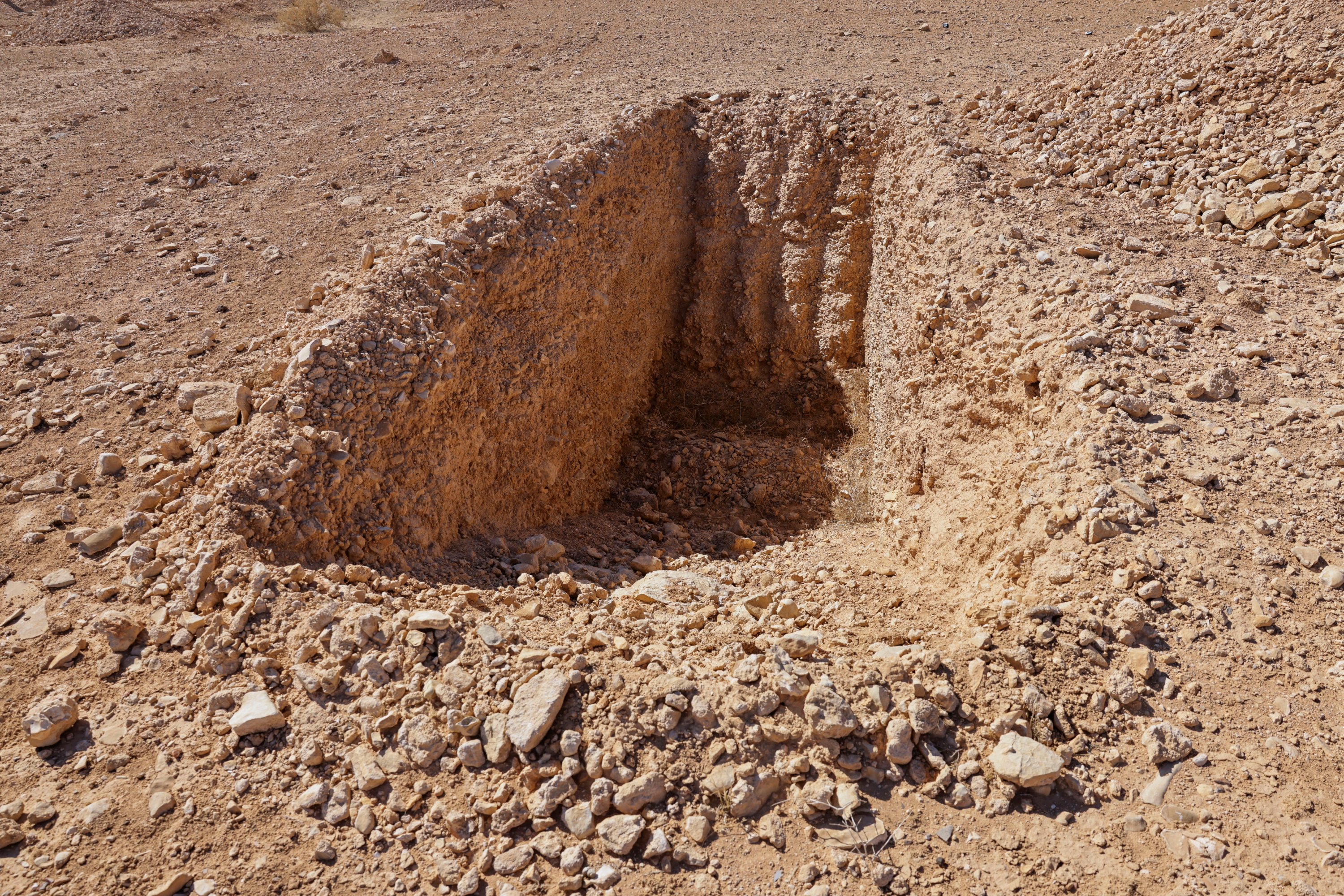The Assad regime ran a clandestine two-year operation to exhume and secretly relocate thousands of bodies from one of Syria’s largest mass graves to a remote desert site in an attempt to conceal evidence of war crimes, a Reuters investigation has revealed.
The covert campaign, known internally as Operation Move Earth, involved trucking human remains from the Qutayfah mass grave near Damascus to an enormous new burial site outside the desert town of Dhumair between 2019 and 2021, according to 13 people with direct knowledge of the effort. Witnesses included military personnel, drivers and mechanics who participated in the transfers.
Reuters reviewed official documents, satellite imagery and eyewitness accounts that detail how six to eight trucks loaded with dirt and human remains made near-nightly trips for more than two years, creating what is believed to be one of the most extensive mass graves of the Syrian civil war. The new site, containing at least 34 trenches stretching nearly 2 kilometers, may hold tens of thousands of bodies.

Sources said the operation was ordered by Bashar Assad’s military in a bid to “erase evidence” of mass killings at Qutayfah and improve the regime’s image as it sought international rehabilitation after years of isolation. “The goal was to clear out Qutayfah and hide the crimes,” said a former officer from Assad’s elite Republican Guard.
Assad’s forces began using Qutayfah as a burial ground in 2012, with victims reportedly including soldiers and detainees who died in prisons and military hospitals. The site’s existence was first revealed in 2014 when a Syrian rights activist released photos showing mass burials near Damascus. By the time the regime fell in December 2024, all 16 trenches at Qutayfah had been emptied.
More than 160,000 people are still missing after disappearing into Assad’s security apparatus, according to Syrian rights groups. Experts say identifying the victims will require systematic excavation and DNA analysis — an enormous challenge in a country still reeling from war.
Mohammed Reda Jehlki, head of the new government’s National Commission for Missing People, acknowledged the vast scale of the task. He said plans were underway to create a DNA bank and digital database for families of the disappeared, but the lack of forensic resources remains a major obstacle.
“There is a bleeding wound as long as mothers wait to find the graves of their sons, wives wait for their husbands, and children for their fathers,” Jehlki told the semi-official al-Watan newspaper in August.
Mohamed Al Abdallah, director of the Syria Justice and Accountability Center, called the mass transfer a “disaster for grieving families,” saying the process will make returning remains to relatives “extremely complicated.” He welcomed the commission’s creation but warned it “still lacks the experts and resources needed to deliver justice.”
Drivers and soldiers involved in Operation Move Earth said disobeying orders was unthinkable. “No one would say no,” one truck driver recalled. “You yourself might end up in the holes.”
Reuters
















Comments About This Article
Please fill the fields below.